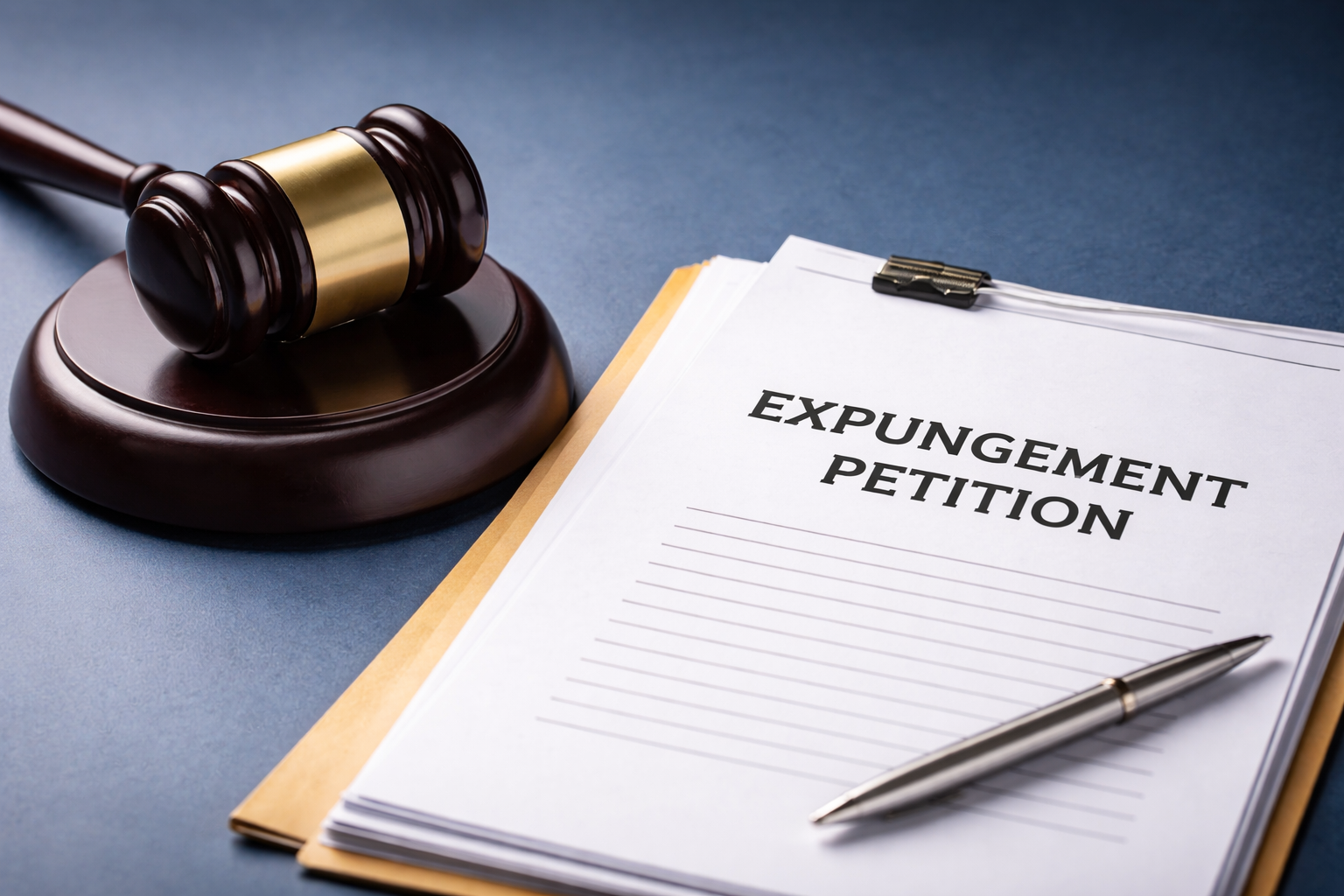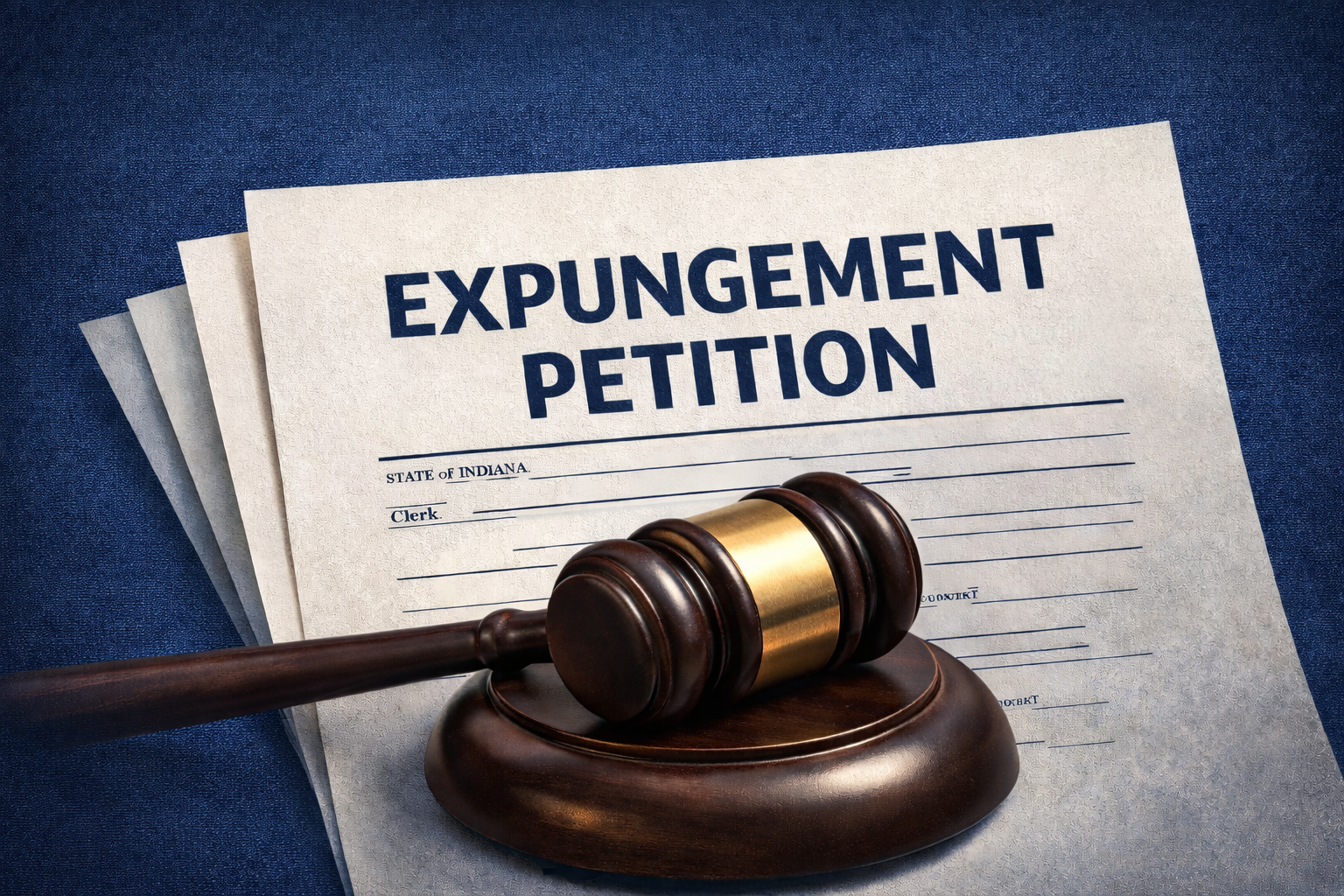Indiana Expungement: Common Mistakes to Avoid
Expungement in Indiana offers individuals a second chance by sealing or removing criminal records from public access, allowing them to pursue better job opportunities, housing options, and financial stability. However, the process is complex, and one mistake can lead to delays or denial of your petition.
This guide highlights the most common mistakes people make when seeking expungement in Indiana and provides practical tips to help you navigate the process successfully.
📞 Need help with expungement? Contact Vining Legal at (317) 759-3225 for a free consultation.
1. Expungement in Indiana: A Fresh Start
What is Expungement?
Expungement is the legal process of sealing or setting aside criminal records, preventing most employers, landlords, and the general public from accessing them.
Benefits of Expungement
✔ Better Job Opportunities – Employers often run background checks, and a clean record improves hiring chances.
✔ Improved Housing Access – Many landlords deny applications due to criminal history.
✔ Restoration of Firearm Rights – Expungement may restore firearm rights for eligible individuals.
✔ Peace of Mind & Reduced Stigma – Expungement allows individuals to move forward without the burden of past mistakes.
📌 Legal Authority: Expungement laws are governed by Indiana Code § 35-38-9.
👉 Bottom Line: If you qualify, expungement can be life-changing—but only if the process is done correctly.
2. Common Expungement Mistakes to Avoid
❌ Mistake #1: Not Waiting the Required Time Period
Each type of conviction has a waiting period before it can be expunged. Filing too early will result in automatic denial.
✔ Arrests without Convictions – 1 year after the date of arrest.
✔ Misdemeanors – 5 years from the date of conviction.
✔ Level 6 Felonies (Formerly Class D Felonies) – 8 years from the date of conviction.
✔ More Serious Felonies – Longer waiting periods and court approval required.
Tip: Ensure your eligibility before filing to avoid wasting time and court fees.
❌ Mistake #2: Not Meeting Eligibility Criteria
Certain offenses may not be eligible for expungement. Additionally, you must not have any pending criminal charges when applying.
✔ Some serious felonies (such as sex crimes or violent offenses) may not be expunged.
✔ If you have multiple convictions, the process can be more complex.
Tip: Consult an attorney to determine if your convictions qualify for expungement.
❌ Mistake #3: Filing Incomplete or Inaccurate Paperwork
Expungement requires detailed legal paperwork, and even a small error can result in delays or rejection.
✔ Missing required information can lead to automatic denial.
✔ Inaccurate details about your conviction history can cause legal issues.
✔ Failing to include all eligible convictions can prevent full expungement.
Tip: Double-check all information and have an attorney review your petition before filing.
❌ Mistake #4: Not Following Court Procedures
Expungement petitions must be filed in the correct jurisdiction and follow strict procedural rules.
✔ You must file the petition in the county where the conviction occurred.
✔ Some cases require a court hearing, and failure to attend can lead to denial.
Tip: Know the legal process and deadlines for your specific case to ensure success.
❌ Mistake #5: Not Disclosing All Convictions
Expungement is a one-time opportunity in Indiana, meaning you must list all eligible convictions in your petition.
✔ If you leave out a conviction, you cannot go back and add it later.
✔ Out-of-state convictions may still appear in records and should be discussed with an attorney.
Tip: Obtain a full criminal history report before filing to ensure accuracy.
❌ Mistake #6: Representing Yourself in Court Without an Attorney
While you can file an expungement petition on your own, small mistakes can lead to denial or delays.
✔ Expungement laws are complex and frequently updated.
✔ A lawyer ensures proper paperwork, deadlines, and legal representation if a hearing is required.
Tip: Hiring an experienced expungement attorney significantly improves your chances of success.
📞 Want professional legal help? Call Vining Legal at (317) 759-3225.
❌ Mistake #7: Misunderstanding the Scope of Expungement
Expungement does not erase your record entirely—certain entities may still have access.
✔ Law enforcement agencies, courts, and some licensing boards may still view sealed records.
✔ Federal background checks (such as immigration applications) may still uncover expunged records.
Tip: Understand what expungement does and doesn’t do before filing.
3. Tips for a Successful Expungement
✔ Consult an Attorney Early – An experienced lawyer can assess your eligibility and handle legal filings.
✔ Gather All Required Documents – Obtain court records, criminal history, and case details before filing.
✔ Be Honest & Transparent – Omitting information can result in denial.
✔ Follow All Court Procedures & Deadlines – Expungement is not automatic; you must comply with legal requirements.
✔ Be Patient & Persistent – The process takes 60-90 days, so follow up regularly.
4. Why You Should Hire an Expungement Attorney
Hiring an attorney dramatically increases your success rate by ensuring:
✔ Accurate paperwork & filings
✔ Timely submission of all legal documents
✔ Proper legal arguments in court (if needed)
✔ A smooth, stress-free process
📞 Don’t risk making a costly mistake—Call Vining Legal at (317) 759-3225 today.
Conclusion: Get It Right the First Time
Expungement is a powerful tool, but one mistake can derail the process.
✅ Key Takeaways:
Ensure you meet all eligibility requirements before filing.
Complete all paperwork accurately to avoid delays or denial.
Follow proper legal procedures and court deadlines.
Disclose all past convictions—this is a one-time opportunity.
Consider hiring an attorney to improve your chances of success.
📞 Call Vining Legal at (317) 759-3225 or schedule a consultation to get started.










